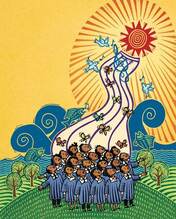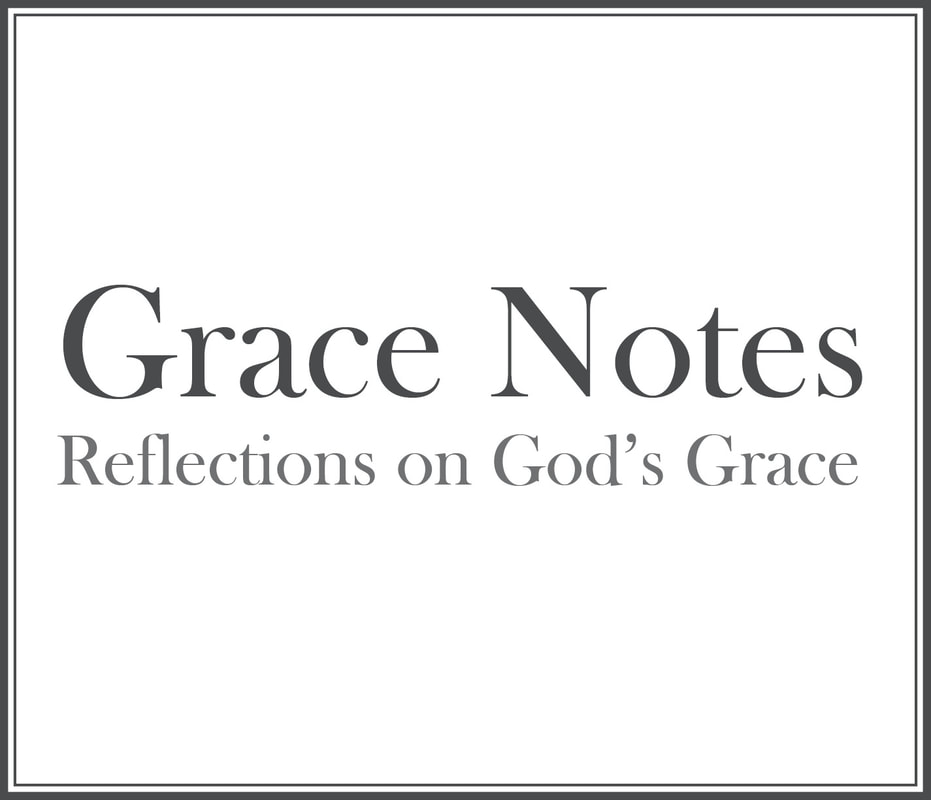 This week’s GraceNotes is from Asta Twedt, a member of the congregation with deep roots in her faith and the cause of justice. She testifies that we can, no matter our age or experience, grow in our understanding of others in the midst of unrest and struggle. Resurrection happens when struggle is embraced. – Pastor Tim Until this year, I thought Juneteenth was a celebration for African Americans. How wrong I was!
The weeks since the murder of George Floyd have brought an awakening to white America which calls for radical change in systems of policing, education, health care, wealth, and countless other areas of civil society that are rooted in the racism and dehumanization of Black people in our country going back 401 years. For the last several days I have not been able to get the words and tune to what is considered the Black National Anthem out of my head, so I have been playing it on the piano in its appropriate slow tempo. I used to sing this hymn like the white Lutheran that I am, fast and peppy. I learned something (as every teacher does every day from her students) on September 11, 2002. That day was the first anniversary of the attack we remember as 9/11. I wanted to do some commemoration of the event with my GED students at the Iowa Correctional Institution for Women, but I wasn’t comfortable with the type of patriotic events that most people were planning. I opted for a long program of poetry reading. Since my students didn’t have access to resources, I chose the poetry and pretty much made it a one-woman show. I spent a long time deciding what to read, and ended up selecting what I thought reflected the history of our country and the strength of the people who through their lives and work and joy and suffering added texture and character and value to our life as a nation. On September 10, I told my students they would not be allowed to do school work the next day, but they would be coming to a commemoration of September 11. I met them at the classroom door with a program listing the poetry selections that were to be read mostly by me, but also some by my resident peer tutors. A change of routine was always welcomed by my students, so I knew I would have a “captive” audience, but I could never have predicted how emotional my classes would be that day for not only my students, but for me as well. In my first period class, after I told a little about James W. Johnson and read the first stanza of his stunning poem, “Lift Every Voice and Sing,” one of my African American students remarked, “Miss Asta, did you know that is the Black National Anthem?” I responded that I did, and then she said, “We used to sing that first thing every morning in my school in Chicago!” I was stunned. I had no idea schools did that. I asked her if she would like to sing it and told her I would sing along if she wanted me to. The whole class stood, and she, another student, and I sang. That’s when I learned the correct slow tempo. If I had really listened to the words, I would have known. Although we only sang the first stanza, the second verse goes on to say, “Stony the road we trod, bitter the chastening rod felt in the days when hope unborn had died.” And “We have come over a way that with tears has been watered; we have come, treading our path through the blood of the slaughtered…” In my second and third period classes that day, I asked my students if they knew the poem as a song, and in both classes, we sang. It was a gift from my students I will never forget. I knew my students would “enjoy” the event, but I hadn’t anticipated they would leave with tears and laughter and joy. So Juneteenth? It’s a celebration we white people need to embrace. We can never understand the pain and fear of what it means to be Black in America, but we can and must commit to become antiracist. We can and must insist on renewing the Emancipation Proclamation, and we can and must proclaim that Black Lives Matter! In Christ, Asta Twedt
0 Comments
Leave a Reply. |
Categories
All
Archives
July 2024
|


 RSS Feed
RSS Feed

